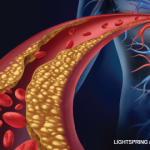Exceeding the daily dosing limit was associated with exceeding the one-time dose, particularly for individuals with one-tablet doses vs. two-tablet doses. Participant characteristics associated with exceeding the daily dosing limit were being male, having chronic or other ongoing pain, having poor physical function, having a high school level education and being a daily smoker. Additionally, these participants had the attitude of “choosing my own dose,” did not start with the lowest recommended dose and had poor knowledge of the recommended one-time and 24-hour doses. Users were more likely to exceed the one-dose medication amount if they were in severe pain.
The authors found that a mindset of “NSAID users can choose their own dose” irrespective of dosing recommendations and poor knowledge of maximum one-time and 24-hour dosing was associated with exceeding the daily dosing limit. Starting with the lowest effective dose was inversely associated with exceeding the daily dosing limit. Additionally, these characteristics are potentially modifiable.
One major limitation was the study’s low participation rate.
Adalimumab Biosimilar Coming to Market
On April 5, Samsung Bioepis Co. Ltd. announced it had settled all pending patent litigation with AbbVie Inc. over SB5 (Imraldi). Imraldi is biosimilar to AbbVie Inc.’s adalimumab (Humira). Imraldi is expected to be available in Europe in October 2018. If the agent receives FDA approval, it will be available in the U.S. in June 2023.3
FDA Approves Tildrakizumab-asmn for Plaque Psoriasis
Tildrakizumab-asmn (Ilumya) has received FDA approval to treat adults with moderate to severe plaque psoriasis who are candidates for systemic therapy or phototherapy.4 The treatment selectively binds to the p19 subunit of interleukin (IL) 23 and inhibits its interaction with the IL-23 receptor, which inhibits the release of proinflammatory cytokines and chemokines. The treatment is administered as 100 mg subcutaneous injections at Weeks 0 and 4, and every 12 weeks thereafter.
This approval was supported by data from two Phase 3, multi-center, randomized, double-blind, placebo-controlled trials: reSURFACE 1 and reSURFACE 2. The trials included 926 adults treated with either tildrakizumab-asmn (n=616) or placebo (n=310). The primary efficacy endpoints were achieving a Psoriasis Area Sensitivity Index (PASI75) and a Physician’s Global Assessment score of clear or minimal at Week 12, after receiving two doses. Both studies met the primary efficacy endpoints, demonstrating significant clinical improvement with the active drug compared with placebo.
Michele B. Kaufman, PharmD, BCGP, is a freelance medical writer based in New York City and a pharmacist at New York Presbyterian Lower Manhattan Hospital.
References
- Pain Therapeutics Inc. News release: Pain Therapeutics announces FDA advisory committee meeting for Remoxy ER. FirstWord Pharma. 2018 Mar 19.
- Kaufman DW, Kelly JP, Battista DR, et al. Exceeding the daily dosing limit of nonsteroidal anti-inflammatory drugs among ibuprofen users. Pharmacoepidemiol Drug Saf. 2018 Mar;27(3):322–331.
- Samsung Bioepis. News release: Samsung Bioepis settles patent disputes with AbbVie, clearing the way for the commercialization of SB5 (adalimumab) in all approved markets worldwide. 2018 Apr 5.
- Sun Pharma. News release: Sun Pharma announces U.S. FDA approval of Ilumya (tildrakizumab-asmn) for the treatment of moderate to severe plaque psoriasis. 2018 Mar 21.



